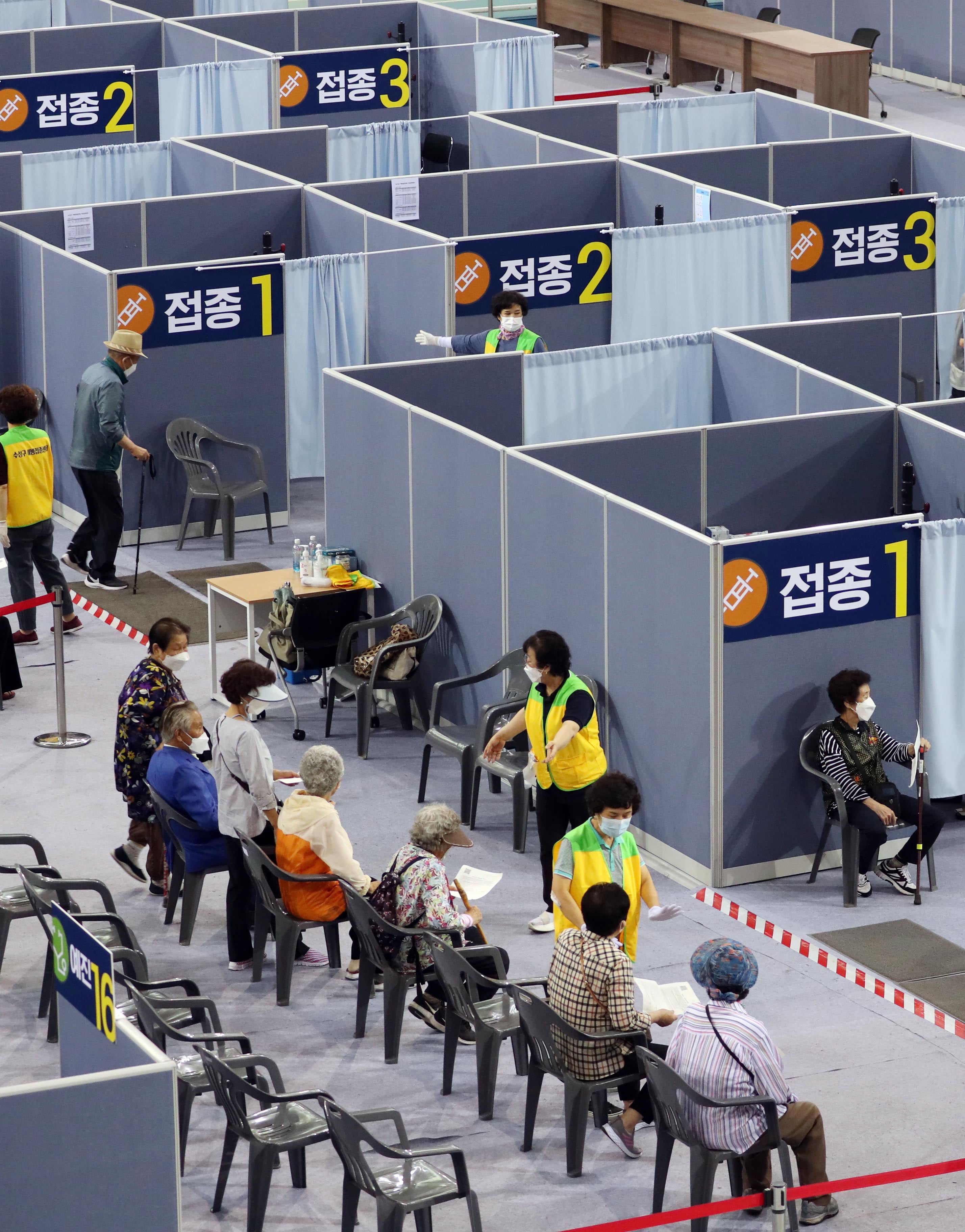South Korean mayor who almost fell for 30 million dose ‘vaccine scam’ issues public apology
The ruling party said the incident ‘damaged the country’s international image’

Your support helps us to tell the story
From reproductive rights to climate change to Big Tech, The Independent is on the ground when the story is developing. Whether it's investigating the financials of Elon Musk's pro-Trump PAC or producing our latest documentary, 'The A Word', which shines a light on the American women fighting for reproductive rights, we know how important it is to parse out the facts from the messaging.
At such a critical moment in US history, we need reporters on the ground. Your donation allows us to keep sending journalists to speak to both sides of the story.
The Independent is trusted by Americans across the entire political spectrum. And unlike many other quality news outlets, we choose not to lock Americans out of our reporting and analysis with paywalls. We believe quality journalism should be available to everyone, paid for by those who can afford it.
Your support makes all the difference.A South Korean mayor who claimed that his city had secured 30 million doses of the Pfizer-BioNTech Covid-19 vaccine has issued a public apology after almost falling for a possible scam.
Kwon Young-jin, mayor of the southeastern city of Daegu, announced last week that a foreign trading company could provide 30 million Pfizer doses in three weeks.
He said he had forwarded the proposal to the central government, urging it to sign a final contract because it would be difficult for Daegu to get the vaccines directly.
Calling the proposal “improper,” South Korea’s health ministry said days later that a German trading company had offered the vaccines to Daegu, not Pfizer or BioNTech themselves.
Ministry spokesperson Sohn Young-rae said they have confirmed with Pfizer’s head office that only the company possesses the right to sell vaccines to South Korea, according to The Korea Times.
Pfizer, which will launch its own investigation into the incident, also said that it did not authorise any other entity to supply its vaccines to the country.
About the incident, Mr Kwon said at a news conference that it started with good intentions to help the government purchase more vaccines, but it has “caused social criticism and political controversy,” according to Yonhap news agency. He also said it has created a “big stir in our society”.
He said the city has not yet paid for the vaccines that were offered.
Accepting responsibility, he said it was his “mistake that this case regarded as one of the simple cases of a failed vaccine import has escalated into a fake vaccine fraud case”.
He said the image of Daegu was “tarnished due to my careless words”.
Mr Kwon, a member of the opposition party, had previously criticised South Korean president Moon Jae-in for not being able to secure enough doses quickly.
Responding to his apology, Mr Moon’s ruling Democratic Party reportedly said the incident “damaged the country’s international image”.
South Korea, which has otherwise been widely praised for its response to the pandemic, has seen a slow rate of vaccinations because of global shortages and a delay in shipments. But the country is in the process of ramping up its inoculation drive and set a daily record on Monday by administering 857,000 doses.
Mr Moon has set a target of vaccinating 36 million people, or 70 per cent of the total population, with a first dose by the third quarter of 2021.
Join our commenting forum
Join thought-provoking conversations, follow other Independent readers and see their replies
Comments